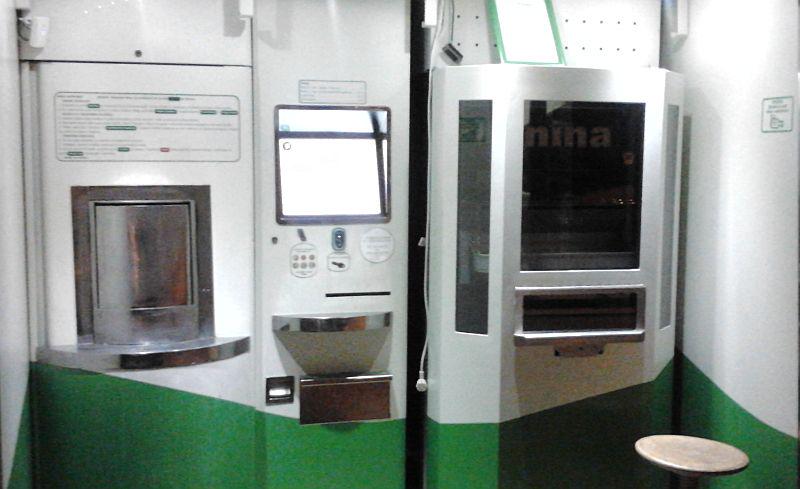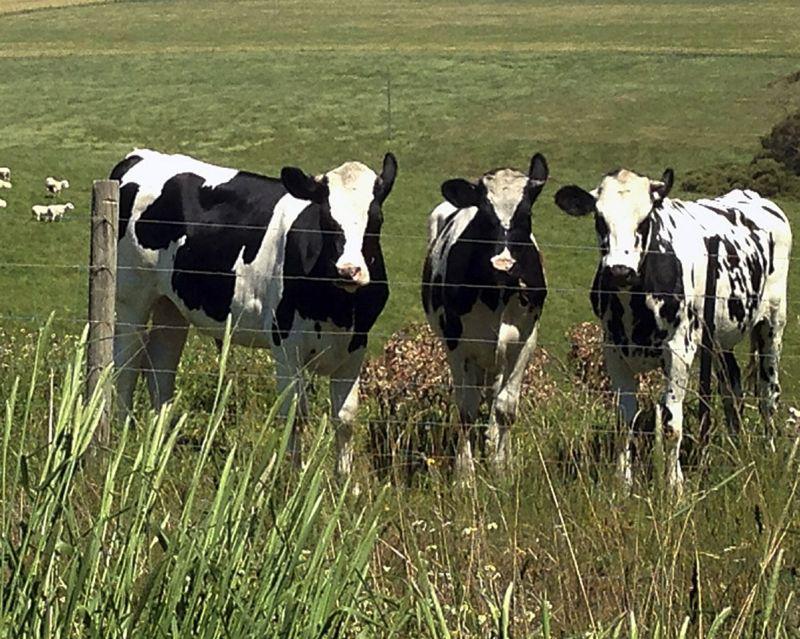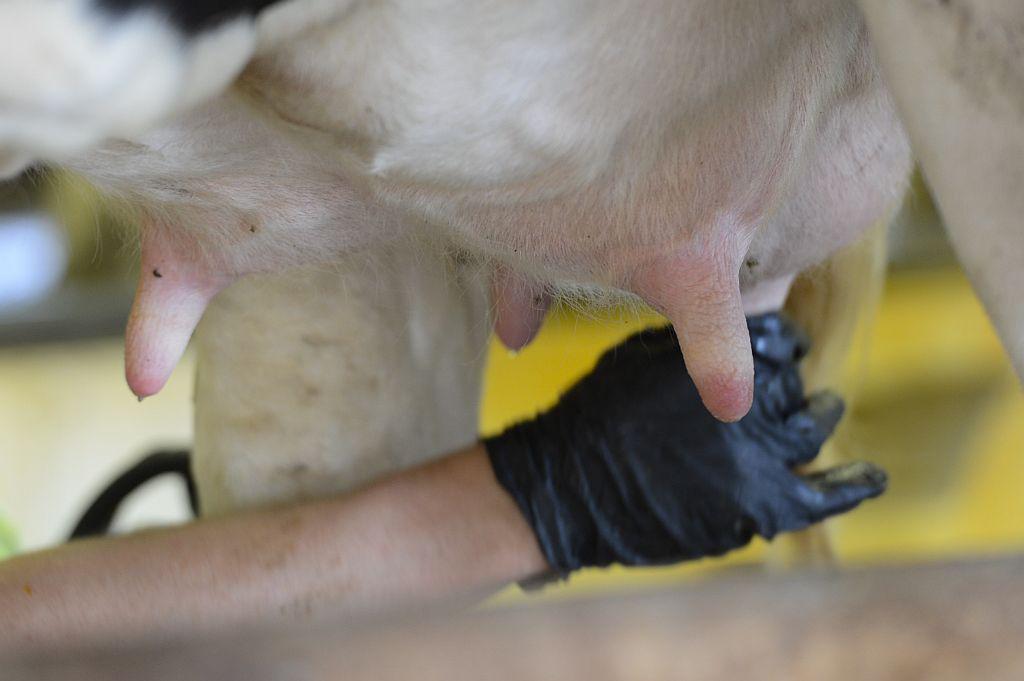



This year the Chamber of Agriculture and Forestry of Slovenia and the Slovenian Rural Youth Association (ZSPM) chose 35 years old Janez Benedičič as the most innovative young farmer of the year. Janez Benedičič, in spite of his PhD in engineering and his work at the Faculty of Engineering, works his home farm at Martinj Vrh above Železniki.
As the need arose, he developed a lateral manure spreader which can spread manure in the range of 20 meters either laterally or backwards, thus making the work easier and improving safety. He started the production of hay milk, which is healthier and tastes better than the average milk, but first he had to improve hay drying.
He upgraded the condensation drier forcing hot air through special heat exchangers. He built in a heat pump into the system, reducing the consumption of electrical energy by 20%. He set a so-called automatic market in Železniki, a Healthy Spot, where the passers-by can buy home- produced (ecologically produced) hay milk, ecologically produced eggs, home-made bread, and some other produce not only from his, but from some neighbouring farms as well.
You have a PhD in engineering. The question is obvious: why would an educated person chose farming, a profession which we all know is neither easy nor profitable?
My choice of engineering was actually the result of my life on a farm, where you come daily in contact with machines and the modifications you need to make in order to make your work easier, and more efficient.
So you have always known that one day you would go back home, to the farm?
In the end it turned out that way. But I have always liked it. The theoretical knowledge required for developing new products was acquired in the laboratory of the Faculty of Engineering, where I am still employed. The same knowledge was of great use to me also in developing my farm.
So you are employed?
I have a part-time job at the Faculty of Engineering. I work on projects for companies, on developing new products.
Already in your student years you dedicated your time to development of methodology for searching opportunities for new products, and development of new products… The development of new products does not differ, be it a food product, a technical product at the farm, or products for a company.
You won award for the most innovative farmer for the development of a number of innovations on your farm – you developed a lateral manure spreader, upgraded a condensation drier, set a milk- and bread-dispenser and developed software for automatic market… Do you use these innovations only for yourself, or do you intend to sell the patents, or you plan a mass production?
These products were made for ourselves, and we intend to test them ourselves. It is the best way to check their operation, to find out the eventual problems, and their best use. You can upgrade them, repair them. In future we would like to manufacture these products for other farms as well, and help them write their success stories.
What encouraged you to develop the number of innovations? Only your wish to make the work easier?
Primarily it was the wish to make our work easier, and to increase safety at work – especially with lateral manure spreader. Spreading manure is one of the most dangerous farm jobs.
Especially on a mountain farm
Exactly. Manure is mostly spread in spring and in autumn, when the land is wet, and the tractor can easily slide on the slope, etc. The other two innovations – improved hay drying, and direct sale of products through automatic markets – were necessary to keep the farm functioning. In our conditions a farm cannot survive with conventional production of milk. The costs are so high, and the income so low that it simply is not possible. The improvements we made improved the sale, allowed us to increase the price of the products and consequently resulted in economic survival. Modest, but survival nonetheless.
The knowledge of engineering is always welcome at the farm, as there must be a number of things needing fixing, improving. Yet your innovations are not limited to that – you are also oriented towards marketing of your produce, and produce of your neighbours – you have already mentioned the automatic market. Do you see the future of farming in linking of farmers, especially the small ones?
Definitely. With a joint approach you have a bigger impact on the market, plus each individual has certain advantages, which complement each other, and that is good for everybody. Someone is strong on one field, someone else on another … A good example is the automatic purchase point: our consumers can get produce of several suppliers at the same place, all of high quality. In this way a wider selection of high-quality local produce is available.
And healthier!
By all means. It has been our starting point from the very beginning. When we decided on direct marketing, we knew we had to do something different, something to make people really satisfied with our produce. Hay milk is such a product. Also the results of the research made in Wien, Austria established that the hay milk contains up to twice the quantity of omega 3 fatty acids, and it has a better ratio between omega 3 and omega 6 fatty acids, it contains less allergens, etc. These advantages were recognized by the consumers without much advertising.
Hay milk actually means that your cows eat only hay?
Yes, caws are fed only hay, and eat fresh grass at pasture. No grass or maize silage.
What about fodder?
In very, very small quantities. We use ecological corn - maize, and wheat.

































































